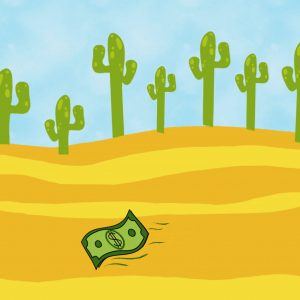Rimini Centre for Economic Analysis holds conference on recession in Waterloo


The tenth Rimini Centre for Economic Analysis (RCEA) Macro-Money-Finance conference which took place on Sept. 13 and 14 at the Balsillie School of International Affair in Waterloo zeroed in on the topic “is a recession coming?”
“Economics defines a recession as an overwhelming and wide spread decline in economy activity which lasts for a period of time, which may be a quarter, two quarters or longer, and effects major sectors of the economy,” said Jerzy (Jurek) Konieczny, professor of economics and Wilfrid Laurier University and director of the RCEA.
Emmanuel Farhi of Harvard University and Enrique Mendoza of University of Pennsylvania were the keynote speakers at the event, which centred its overarching topic on their areas of expertise.
The purpose of the conference is to bring leading researchers in the macroeconomic, monetary economics and financial fields together to present and discuss their work relating to the encompassing theme of the conference.
While discussion on the possibility of a recession was chosen as the theme of this year’s conference, the selection has more to do with the availability of speakers than an economic crisis looming on the horizon for Canada.
“Two months ago, there was a sign in the U.S., the long term interest rates fell below the short term interest rates, it’s called an interest rate inversion and before the previous 5 U.S. recessions it happened. It happened only once within the past 40 or 50 years without a recession,” said Konieczny. “But the Canadian economy is solid, there are no signs of a recession. I can’t see any Canadian originating reasons for a recession.”
Despite the fact that there have not been any red flags in the Canadian economy as of yet, individual countries economies are always changing and influencing each other, as is the global economy.
“Of course there is another possibility which is a recession in the U.S. which makes people pessimistic. Export to the U.S. would be falling and people would reduce spending, that could be a reason for a recession,” said Konieczny.
As an individual, there are steps you can take towards self-preservation in the wake of recession.
“If you’re afraid you may lose a job, then maybe you shouldn’t be spending. You should delay purchases you can, not like delaying going to the movies but if you need a new car and you can use your old car for a year longer,” said Konieczny. “Of course if everyone does that it’s a self-fulfilling prophecy – people start worrying about a recession, they cut on spending just in case and a recession happens because of lower spending,” said Konieczny.
“At the level of policy makers, central bank reduces interest rates to fend off a recession and federal government, because it’s not something that the provincial government does typically, the federal government would increase its spending to counter the reduced spending by consumers.”
Recession also directly affect university students, especially graduating students, and universities as a whole.
“Going on the job market in a recession is not great,” said Konieczny. “It will impact students because if they graduate in a recession it will be harder to get a job and it can have longer term consequences in that the experience with this job might not be the greatest and might not be consistent with their qualifications.”
“Second, if there is a recession, there is higher competition for universities because people who are not getting a job decide that they want to improve their education. So people will see higher demand for university space.”

